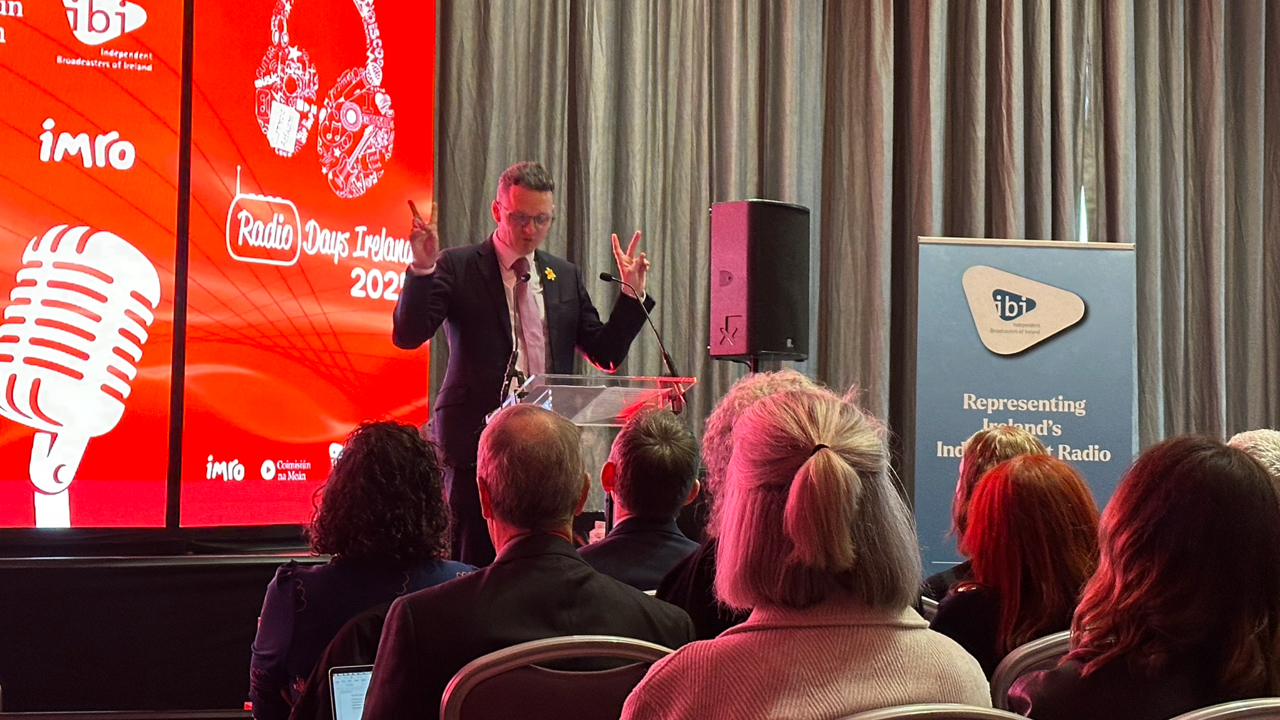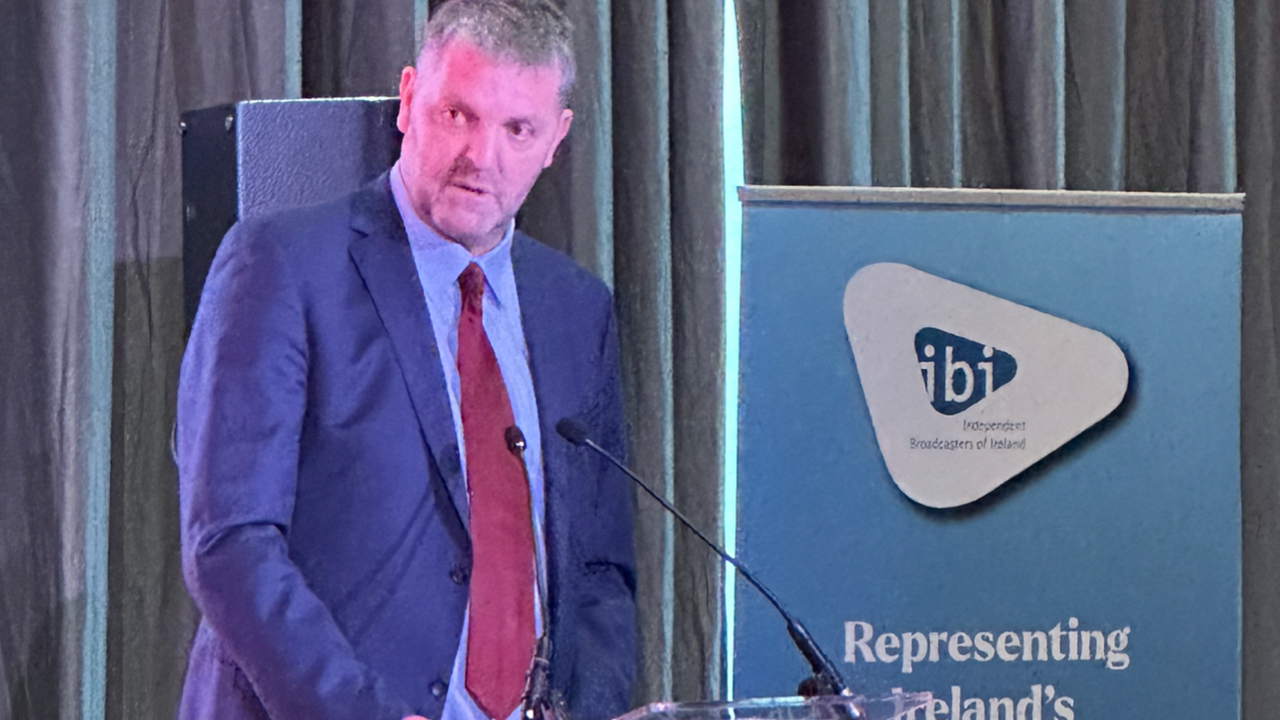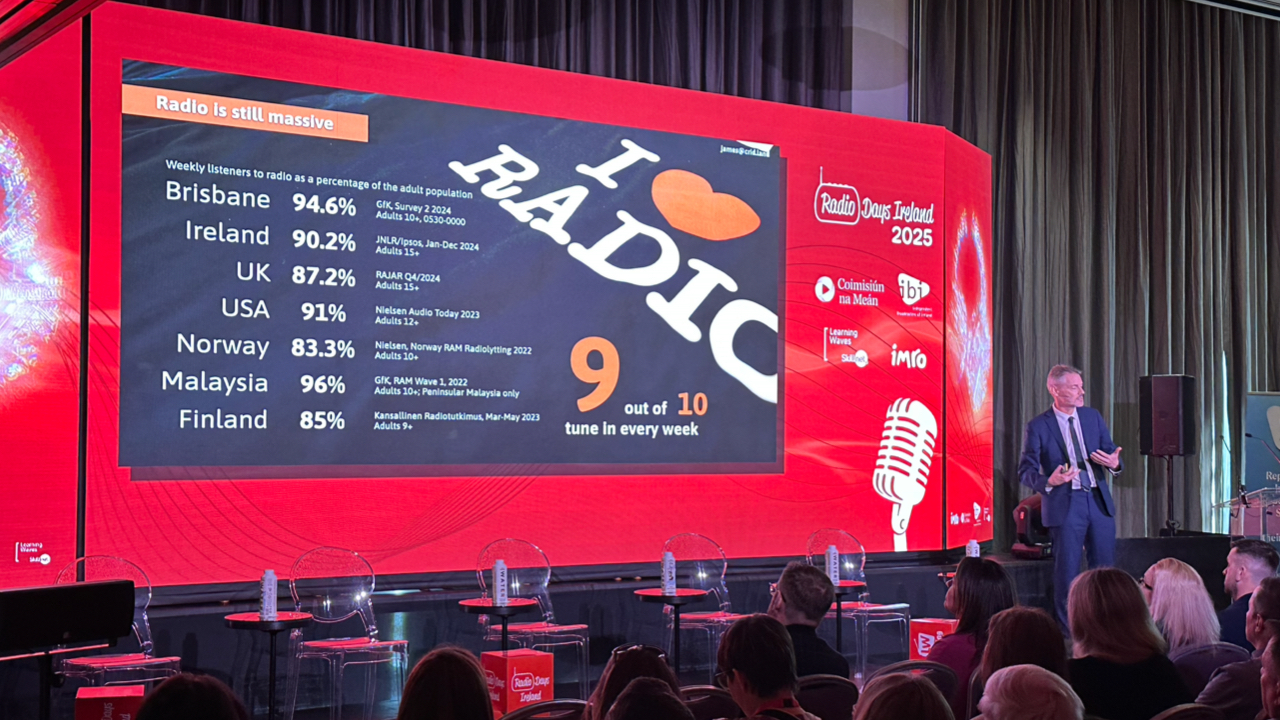
Ireland’s Communications Minister Patrick O’Donovan alternated between humour and serious commentary in his opening speech at RadioDays Ireland.
“We have a hunger for news in Ireland, perhaps because we are very nosey people and we love a chat,” he joked. “Sure, radio is a ‘fun medium,’ except for people like me who sometimes get a grilling. But grilling politicians is important…
“So called citizen journalists who stick a phone in your face are an afront to everything that proper media stands for. Media should hold government to account but should also stand by proper standards,” he said.
The minister told delegates that the Communications portfolio is considered a huge ministerial responsibility in government. “Media is important to our democracy here in Ireland and globally… We take democratic principles seriously,” he said, referring to the recent election in Ireland and to world events after the inauguration of a new US President.
“It is important for people to have a regular place to go to so they can understand what is happening in the world. We have an attachment to local news and people still want to hear their local accents, so local stations are so important in Ireland.
“Local radio has preserved a path of our culture, our language, our discourse and our local connections. Irish people love to talk, we want to have conversations, so radio is important for that.
“In an era where disinformation is so prevalent, where people create fairytales, some people begin to believe the misinformation.. You can’t publicise wanton lies, that is a worrying trend.”
Minister O’Donovan believes it is up to the whole society to combat misinformation. “We are all going to have to take responsibility for real news and current affairs in our society … and educating audiences about what is real and what is not.” He said responsible radio stations will play an important part in achieving that goal.
“Democracy shouldn’t be taken for granted. We are going along a dangerous path. Remember the old saying, ‘bad things happen if good people say nothing,’” he said.
Fionnuala Rabbitt, Chairperson of Learning Waves, organiser of the conference and CEO of Highland Radio has worked in independent radio since its inception. Her father was at Galway FM and as kids they were unpaid labour for minor roles at the station.
What gets Fionnuala riled up is when people say that radio is stale and unsexy. “Radio is not stale and unsexy! Just look at the people in this room, it proves that this industry is full of talented people… and we’re are sexy!” she joked.
Over 80% of Ireland’s population tune in daily to radio and stations are “an integral part of our communities,” she said welcoming the hundreds of conference delegates from all over Ireland.
She spoke about the importance of training in the radio industry, which is partly funded by an Irish skills program called Skillnet. “Good training is an important way of recruiting and retaining good staff, especially journalists,” she said.
Echoeing the sentiments of the Communications Minister, she said “it has never been more important to retain a trusted news service. Radio bring human connection that can help do that.”

John Purcell, Chairperson of Independent Broadcasters of Ireland (IBI) said “we are in show business, we cheer people up, we make them laugh and keep them company. We mean a lot to people and they trust us. We also have a serious role to play in Irish society, we are a trusted source of news.
“In places where there is no trusted media there is polarisation and radicalisation.”
European research shows that over 70% of people in Europe trust what they hear on radio. “The stakes are high for us and for our society” if trust in media is destroyed he said. Purcell acknowledged that there challenges are challenges to radio’s business model in Ireland, “there are threats but also opportunities.” He urged politicians and government to support the industry on the two most important current issues, funding and prominence.
“In an environment where social media seems to be thumbing their noses at any standards that we work by, we will need as much help as we can get,” he said.
This article was written by our colleagues at RadioInfo.


